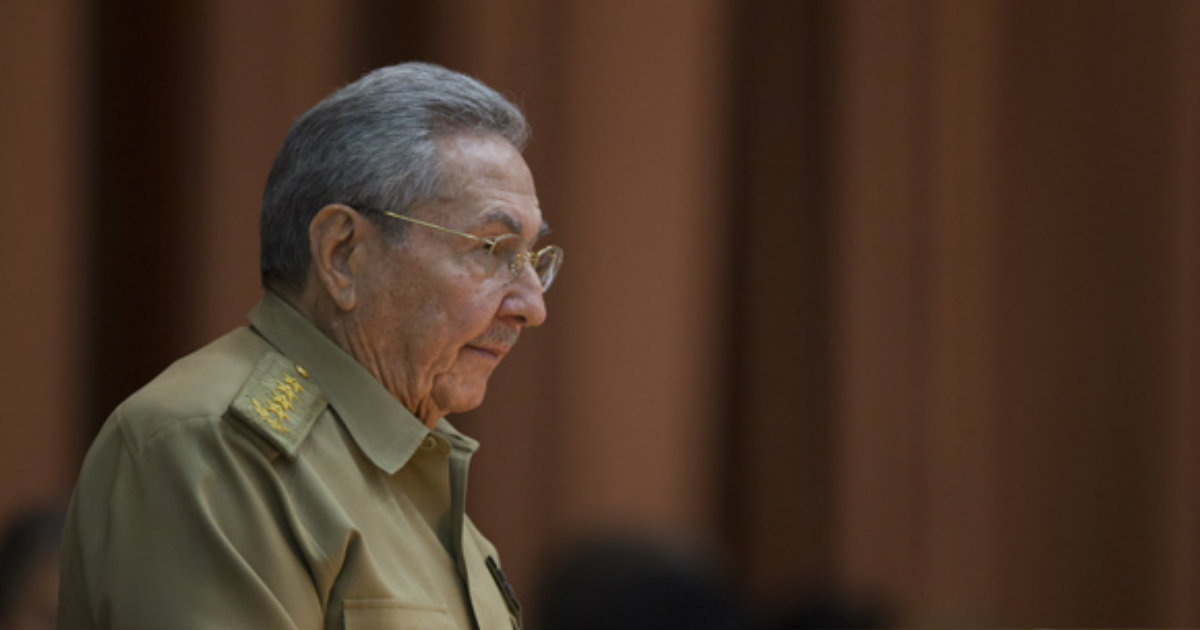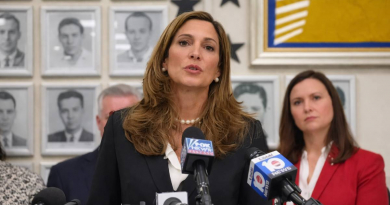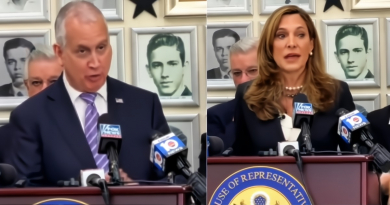
Raúl Modesto Castro Ruz (Birán, Holguín, Cuba, June 3, 1931) is a Cuban military officer and politician, the younger brother and collaborator of Fidel Castro. He has been the president of the Council of State of Cuba and, therefore, the president of Cuba, since February 24, 2008, although he served in the role on an interim basis since July 31, 2006. He also holds the military rank of Army General. Since April 2011, he has been the First Secretary of the Communist Party of Cuba, succeeding his brother Fidel in that position as well.
Son of the Lucense citizen Ángel Castro Argiz, he is the youngest of the three Castro brothers. Like Fidel, Raúl later attended the Jesuit College of Dolores in Santiago de Cuba and the Belén College in Havana. The brothers actively participated in student demonstrations. Raúl was a committed communist and joined the Socialist Youth, affiliated with the Cuban Communist Party, which at that time was called the Popular Socialist Party (PSP).
Cuban Revolution (1953-59)
Raúl Castro, on the left, with Che Guevara in 1958.
Along with his brother, he was one of the members of the 26th of July Movement, which carried out the assault on the Moncada Barracks on July 26, 1953, in the city of Santiago de Cuba. During the attack, he was tasked with supporting the actions from the rooftop of the Palace of Justice in that city, a mission he fulfilled. He was later arrested and sentenced to 13 years in prison. After being granted amnesty, he went into exile in Mexico, where he participated in the preparations for the expedition of the yacht Granma, which would land in Cuba in December 1956 after a long journey.
He met Che Guevara in Mexico City and introduced him to Fidel's revolutionary circle. Raúl also contacted KGB agent Nikolai Leonov, whom he had met during his travels through Eastern Bloc nations. This relationship would persist until the Castro brothers took power in Cuba.
As a fighter in the Rebel Army, he took part in the Sierra Maestra campaign. On February 27, 1958, he was appointed commander and assigned the mission of crossing the former province of Oriente, leading a column of guerrillas to open the Second Eastern Front "Frank País" (in honor of a leader of the underground killed by Batista's forces in the city of Santiago de Cuba) to the northeast. In that front, Raúl organized and structured a true government in the liberated territories, even creating the Rebel Air Force, along with the first intelligence and police institutions of the revolutionaries, as well as departments for health, education, and more.
Post-revolutionary period (1959-2006)
In 1961, he became part of the National Directorate of Integrated Revolutionary Organizations. Following the departure of Che Guevara, he became the second political figure in the government. He joined the leadership of the United Party of the Socialist Revolution (PURS) in 1963. He was responsible for investigating, denouncing, and prosecuting members of the so-called "micro-fraction" within the Communist Party. From 1980 onwards, he held supervisory roles alongside his brother in the Ministries of Defense, Interior, Culture, and Public Health.
Interim Government (2006-2008)
Raúl Castro alongside former Brazilian president, Lula.
The constitutional successor of Fidel Castro, on July 31, 2006, his secretary, Carlos Valenciaga, announced that Raúl would temporarily assume the presidency of the Council of State, the secretaryship of the PCC, and the command of the Armed Forces while his brother recovered from an intestinal surgery.
During the time that Raúl temporarily led Cuba, there were notable slight increases in the economy, along with the massive debate he himself incited regarding the nation’s problems, which resulted in public proposals from the population starting on July 26, 2007.
In these debates, more than 5 million proposals from citizens were made, serving as the basis for solving the problems that hinder the development of Cuban society.
Government (since 2008)
On February 24, 2008, he was elected President of the Council of State of Cuba by the Deputies of the National Assembly of People's Power, thus succeeding his brother Fidel Castro as the president of Cuba, who had resigned a few days earlier through an open letter.
New measures and changes in Cuban policy
..."In December, I spoke about the excess of prohibitions and regulations, and in the coming weeks we will begin to eliminate the simplest ones. Many of them had the sole purpose of preventing the emergence of new inequalities during a time of widespread scarcity, even at the cost of forgoing certain revenues." Raúl Castro Ruz February 24, 2008
In keeping with what was expressed in February 2008, Raúl Castro began to lift various legal restrictions that limited the people, such as free access to hotels and car rentals, or allowing the unrestricted sale of mobile phones. During its inaugural session, he requested the National Assembly of People's Power for an extension until the end of 2008 for the restructuring of the Government, which took place in March 2009 with the merging of several ministries and the replacement of nearly half of the ministers, including the well-known Carlos Lage Dávila and Felipe Pérez Roque.
Between September and November 2008, Cuba was battered by hurricanes Gustav, Ike, and Paloma, causing over ten billion in economic losses. The hurricanes dealt a heavy blow to the Cuban economy, which was deemed the worst natural disaster in its history. As a result, there was a shortage of food throughout the country and the implementation of strict measures to control any attempts at hoarding or speculation of goods and food
Since September 2008, the Cuban state decided to grant usufruct rights to farmers for idle land. By December 2009, 920,000 hectares of land had been granted in a process that is not without difficulties and delays
In January 2009, the Social Security Law was reformed, raising the retirement age to 60 for women and 65 for men. This year, the salary cap has also been eliminated, multiple employment has been authorized, and performance-based pay has been reinstated.
Since October 2009, the workers' cafeterias, another one of the country's subsidies, were gradually closed down, and in their place, workers were given an additional 15 pesos daily for their lunch or snack.
In the same year, 2009, Castro's government allowed Cubans to access the Internet at the country's postal offices, although there have been some technical issues due to the U.S. embargo, which hinders fast connections. This situation improved with the completion of a submarine cable between Venezuela and the island in 2011
On October 10, 2009, Lázaro Barredo, director of Granma, the newspaper of the Communist Party of Cuba, announced that the ration card would be eliminated and food aid would be granted only to retirees and low-income individuals.
By the end of October 2010, the Cuban government has authorized 178 private activities, aiming to transition 1 million workers from bureaucratic jobs to productive ones, both public and private, within a period of three to five years.
In April 2011, he was elected as the First Secretary of the Communist Party of Cuba at the Sixth Congress, where economic reforms were established to adapt the system to new economic circumstances and the global and national crisis.
On February 24, 2013, the National Assembly of People's Power re-elected Raúl Castro as president of the Council of State.
International relations
Raúl Castro and Argentine President Cristina Fernández de Kirchner in 2009.
Raúl Castro began from the early moments of his provisional government to reassess relations with nations such as Mexico and Russia, and there was also a noticeable strengthening of ties with China.
In his speech on December 2, 2006, Raúl Castro, then provisional president of Cuba, announced that the Cuban government was willing to initiate conversations with the United States in order to end the diplomatic limitations between the two nations, which would signify the definitive blow to the policy of rejecting anything American. The only condition put forth by the Cuban government is that the U.S. does not impose any conditions to start such dialogue.
In a recent interview with American actor Sean Penn, he expressed that he was open to a dialogue with elected President Barack Obama and that such an interview could even take place on the territory of the Guantanamo Naval Base.
In December 2008, Raúl Castro undertook an important international tour that included Venezuela and Brazil. The highlight of his tour was his participation in the I Summit of Latin America and the Caribbean, held in the city of Salvador da Bahia. The context of that summit served as the platform for Cuba's entry into the Rio Group.
On February 24, 2013, the National Assembly of People's Power reelected Raúl Castro as President of the Council of State
On December 17, 2014, he announced, alongside his U.S. counterpart Barack Obama, the restoration of diplomatic relations between the United States of America and the Republic of Cuba.
On April 19, 2018, Miguel Díaz-Canel was elected president by the IX Legislature of the National Assembly of Cuba for the period 2018-2023. In this way, he ceased his role as President of the Council of State but retained his position as First Secretary of the Communist Party of Cuba.
Family
Raúl was married to Vilma Espín from the beginning of the Cuban Revolution until her passing (June 18, 2007). He has four children from this marriage: Deborah, Mariela, Nilsa, and Alejandro.

